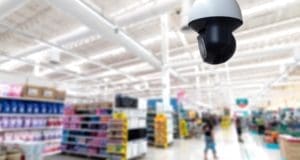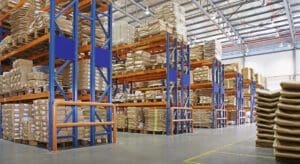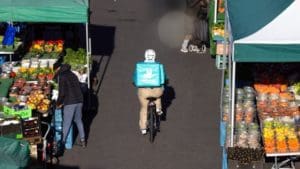 Earlier this week, I read a sobering report from the national Retail Federation (NRF) regarding shrink. For those unaware of the term, shrink is an accounting term used to describe when a store has fewer items in stock than in its recorded book inventory. Factors contributing to shrinkage include employee theft, shoplifting, administrative errors, vendor fraud, product damage, and more. The recently released National Retail Security Survey shows that total shrink in 2021 reported by retailers is now almost a $100 billion problem. Retailers face security-related challenges on many fronts. This year, 88 percent of participating retailers reported that the pandemic resulted in an increase in overall risk for their company. Most reported in-store, e-commerce, and omni-channel fraud are all on the rise. The majority also reported that guest-on-associate violence, external theft, ORC, and cybercrimes have become higher priorities for their organizations. Challenges with labor shortages, employee retention and hiring — as well as issues related to masking and maintaining COVID-19 precautions — have contributed to the risks of violence and hostility. While this is not exactly the best news to hear, it’s time to move on to this week’s logistics news.
Earlier this week, I read a sobering report from the national Retail Federation (NRF) regarding shrink. For those unaware of the term, shrink is an accounting term used to describe when a store has fewer items in stock than in its recorded book inventory. Factors contributing to shrinkage include employee theft, shoplifting, administrative errors, vendor fraud, product damage, and more. The recently released National Retail Security Survey shows that total shrink in 2021 reported by retailers is now almost a $100 billion problem. Retailers face security-related challenges on many fronts. This year, 88 percent of participating retailers reported that the pandemic resulted in an increase in overall risk for their company. Most reported in-store, e-commerce, and omni-channel fraud are all on the rise. The majority also reported that guest-on-associate violence, external theft, ORC, and cybercrimes have become higher priorities for their organizations. Challenges with labor shortages, employee retention and hiring — as well as issues related to masking and maintaining COVID-19 precautions — have contributed to the risks of violence and hostility. While this is not exactly the best news to hear, it’s time to move on to this week’s logistics news.
- Walmart in the news:
- Amazon boasts 25% increase in UK Marketplace sellers
- Small businesses getting squeezed out in push for warehouse space
- Retailers get tough on suppliers for late deliveries
- Walgreens turns to prescription-filling robots
- Deliveroo opens brick and mortar store in London
- NY allows trucking companies to give CDL road tests
 Walmart held its annual Sustainability Summit in Bentonville on Tuesday (Oct. 4), convening suppliers, non-government organization partners and others to discuss successes and ongoing challenges with the retailer’s goal to become a fully regenerative company by 2040. CEO Doug McMillon said Walmart would be the first to admit that it will take everyone if this generation is to pass on a sustainable world to future generations. The company created Project Gigaton in 2017 to engage suppliers and other stakeholders up and down the supply chain to reduce carbon emissions. The goal is to reduce or avoid one billion metric tons (a gigaton) of greenhouse gasses from the global value chain by 2030. Project Gigaton involved setting targets and taking measurable action to reduce emissions across six areas critical to reaching zero emissions. The six areas are energy use, nature, waste, packaging, transportation, and product use and design. Walmart said at the end of 2021, it is 57 percent toward its 2030 goal and while that’s great progress, much of the low-hanging fruit has already been picked. Walmart said it is now more committed to embedding sustainability into every conversation it has with suppliers, service partners, store and club managers, truck manufacturers and other important parts of its massive supply chain.
Walmart held its annual Sustainability Summit in Bentonville on Tuesday (Oct. 4), convening suppliers, non-government organization partners and others to discuss successes and ongoing challenges with the retailer’s goal to become a fully regenerative company by 2040. CEO Doug McMillon said Walmart would be the first to admit that it will take everyone if this generation is to pass on a sustainable world to future generations. The company created Project Gigaton in 2017 to engage suppliers and other stakeholders up and down the supply chain to reduce carbon emissions. The goal is to reduce or avoid one billion metric tons (a gigaton) of greenhouse gasses from the global value chain by 2030. Project Gigaton involved setting targets and taking measurable action to reduce emissions across six areas critical to reaching zero emissions. The six areas are energy use, nature, waste, packaging, transportation, and product use and design. Walmart said at the end of 2021, it is 57 percent toward its 2030 goal and while that’s great progress, much of the low-hanging fruit has already been picked. Walmart said it is now more committed to embedding sustainability into every conversation it has with suppliers, service partners, store and club managers, truck manufacturers and other important parts of its massive supply chain.
 Walmart has entered a definitive agreement to purchase micro-fulfillment center (MFC) developer Alert Innovation. The retailer is taking over Alert after working with the startup on a multi-year pilot of the company’s robotic grocery order-fulfillment technology, known as Alphabot. Walmart began working with Alert in 2016 and launched a test of the autonomous cart-based system in a 20,000-square-foot warehouse connected to a supercenter in Salem, New Hampshire, in 2019. The company had been exploring potential arrangements with other retailers but made clear in its announcement that it would focus its efforts on Walmart going forward. Walmart is absorbing Alert as the retailer steps up its efforts to fulfill e-commerce orders more efficiently against a backdrop of a tight labor market. Financial terms of the deal were not disclosed.
Walmart has entered a definitive agreement to purchase micro-fulfillment center (MFC) developer Alert Innovation. The retailer is taking over Alert after working with the startup on a multi-year pilot of the company’s robotic grocery order-fulfillment technology, known as Alphabot. Walmart began working with Alert in 2016 and launched a test of the autonomous cart-based system in a 20,000-square-foot warehouse connected to a supercenter in Salem, New Hampshire, in 2019. The company had been exploring potential arrangements with other retailers but made clear in its announcement that it would focus its efforts on Walmart going forward. Walmart is absorbing Alert as the retailer steps up its efforts to fulfill e-commerce orders more efficiently against a backdrop of a tight labor market. Financial terms of the deal were not disclosed.
 The number of small and medium-sized British businesses selling over Amazon’s marketplace soared by more than 25 percent in 2021, faster than in Germany, France, or Italy. Some 85,000 smaller UK enterprises now sell on Amazon, responsible for more than 950 million product sales, or 1,750 per minute, Amazon said in a statement Monday. More than 700 of those merchants have sales of more than £1 million ($1.1 million). Facing antitrust scrutiny around the world, Amazon is positioning itself as a champion of small business and a job creator, promoting online courses aimed at sellers to use its platform more effectively. In July, Britain’s Competition and Markets Authority launched a probe into Amazon’s retail and reselling business, following EU and US investigations. The CMA cited suspected breaches of competition law and said its initial information gathering was set to end in September. Some smaller European countries including the Netherlands, Poland and Sweden grew their marketplaces faster than Britain, but from a lower base, Amazon said.
The number of small and medium-sized British businesses selling over Amazon’s marketplace soared by more than 25 percent in 2021, faster than in Germany, France, or Italy. Some 85,000 smaller UK enterprises now sell on Amazon, responsible for more than 950 million product sales, or 1,750 per minute, Amazon said in a statement Monday. More than 700 of those merchants have sales of more than £1 million ($1.1 million). Facing antitrust scrutiny around the world, Amazon is positioning itself as a champion of small business and a job creator, promoting online courses aimed at sellers to use its platform more effectively. In July, Britain’s Competition and Markets Authority launched a probe into Amazon’s retail and reselling business, following EU and US investigations. The CMA cited suspected breaches of competition law and said its initial information gathering was set to end in September. Some smaller European countries including the Netherlands, Poland and Sweden grew their marketplaces faster than Britain, but from a lower base, Amazon said.
 Warehouse space is getting harder to find, especially as the global e-commerce boom continues to change shopping habits. This is putting the squeeze on small businesses. Logistics and real-estate specialists say many large retailers are demanding extra room to store excess inventories, driving up costs for smaller companies and in some cases driving them out of spaces. The challenges small businesses face finding warehouse space mirrors difficulties many had securing room on container ships earlier in the Covid-19 pandemic, when ocean carriers drove up rates and bumped smaller shippers to make way for larger clients. The nationwide vacancy rate for industrial real estate was 3.2 percent in the third quarter, down from 3.8 percent the same quarter a year ago, according to commercial real-estate services firm Cushman & Wakefield. The vacancy rate was over 5 percent in the third quarter of 2020.
Warehouse space is getting harder to find, especially as the global e-commerce boom continues to change shopping habits. This is putting the squeeze on small businesses. Logistics and real-estate specialists say many large retailers are demanding extra room to store excess inventories, driving up costs for smaller companies and in some cases driving them out of spaces. The challenges small businesses face finding warehouse space mirrors difficulties many had securing room on container ships earlier in the Covid-19 pandemic, when ocean carriers drove up rates and bumped smaller shippers to make way for larger clients. The nationwide vacancy rate for industrial real estate was 3.2 percent in the third quarter, down from 3.8 percent the same quarter a year ago, according to commercial real-estate services firm Cushman & Wakefield. The vacancy rate was over 5 percent in the third quarter of 2020.
Large retailers grappling with supply-chain snarls, inflation, and increased automation are cracking down on orders from their vendors. Stores such as Walmart and Target have long fined suppliers that fail to deliver products on time, in the right amount or with the correct specifications. But after the pandemic allowed for some leeway, US retailers are now coming back with tougher standards and tightening expectations on how goods are received. Anything less than exact compliance can result in penalties from fines to losing shelf space when contract negotiations come up, which is a particular challenge for small brands that often have limited resources to scrutinize shipments. The changes among retailers are varied. Target is beefing up the team in charge of policing orders, according to a person familiar with the matter. The number of companies levying supply-chain charges also is growing, said David Friedler, managing partner at consumer-goods consultancy Simpactful. And Walmart recently rolled out extra levies for suppliers using its transportation services.
Robots are everywhere these days. And more and more companies are looking at ways robots can help with mundane tasks. Walgreens, the nation’s second-largest pharmacy chain is setting up a network of automated, centralized drug-filling centers that could fill a city block. Rows of yellow robotic arms bend and rotate as they sort and bottle multicolored pills, sending them down conveyor belts. The company says the setup cuts pharmacist workloads by at least 25 percent and will save Walgreens more than $1 billion a year. The ultimate goal is to give pharmacists more time to provide medical services such as vaccinations, patient outreach and prescribing of some medications. Those services are a relatively new and growing revenue stream for drugstores, which are increasingly able to bill insurers for some clinical services.
 Deliveroo s opening its first physical grocery outlet in the UK on central London’s New Oxford Street in an expansion of its rapid delivery service. Customers will be able to purchase items by ordering through digital kiosks in the store, ordering ahead via the Deliveroo app for in-store collection, or for delivery nearby. The new effort from the London-based food delivery company builds on its partnership with grocery chain Wm Morrison Supermarkets Plc. Traditional retail stores have been shrinking or shutting down, hit by online shopping and the pandemic. Despite the collapse, online-focused firms have been entering the market. Amazon, the largest shareholder in Deliveroo, now runs a number of cashier-less convenience stores throughout London. With shoppers now also cutting back on online-shopping, Deliveroo has been turning to new avenues for revenue. In its latest financial report, Deliveroo said its loss widened less than expected thanks to sales from its new ad platform.
Deliveroo s opening its first physical grocery outlet in the UK on central London’s New Oxford Street in an expansion of its rapid delivery service. Customers will be able to purchase items by ordering through digital kiosks in the store, ordering ahead via the Deliveroo app for in-store collection, or for delivery nearby. The new effort from the London-based food delivery company builds on its partnership with grocery chain Wm Morrison Supermarkets Plc. Traditional retail stores have been shrinking or shutting down, hit by online shopping and the pandemic. Despite the collapse, online-focused firms have been entering the market. Amazon, the largest shareholder in Deliveroo, now runs a number of cashier-less convenience stores throughout London. With shoppers now also cutting back on online-shopping, Deliveroo has been turning to new avenues for revenue. In its latest financial report, Deliveroo said its loss widened less than expected thanks to sales from its new ad platform.
 The truck driver shortage continues to be a hurdle for the industry. The state of New York is now permitting trucking companies and other qualified third parties to administer road tests for commercial driver licenses, a move to help address a shortage of commercial drivers in the state. Earlier this year, New York opened new CDL driver testing sites by partnering with the State University of New York, the Thruway Authority, New York Racing Association and New York State Office of General Services to use large lots on their various sites for road tests. The state’s department of motor vehicles also expedited the CDL process by removing a 14-day waiting period between the permit and road tests, and increased capacity for written exams through cooperation with county-operated DMV offices.
The truck driver shortage continues to be a hurdle for the industry. The state of New York is now permitting trucking companies and other qualified third parties to administer road tests for commercial driver licenses, a move to help address a shortage of commercial drivers in the state. Earlier this year, New York opened new CDL driver testing sites by partnering with the State University of New York, the Thruway Authority, New York Racing Association and New York State Office of General Services to use large lots on their various sites for road tests. The state’s department of motor vehicles also expedited the CDL process by removing a 14-day waiting period between the permit and road tests, and increased capacity for written exams through cooperation with county-operated DMV offices.
That’s all for this week. Enjoy the weekend and the song of the week, Been Caught Stealin’ by Jane’s Addiction.

















